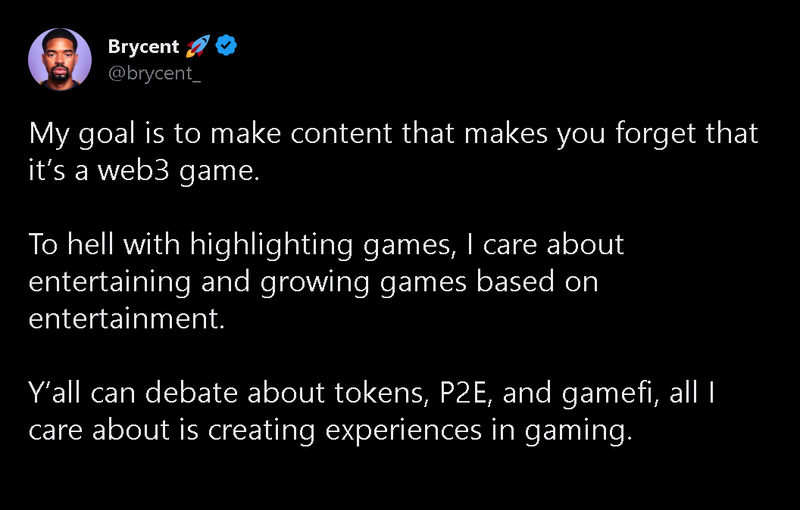Crypto Winter Will Lead to a Blockchain Gaming Spring
Why focusing on fun will sow the seeds for an abundant spring


This crypto winter may be exactly what blockchain gaming needs to find its Clash of Clans moment.
As the market speculation wanes, and the distractions in the media grow stale, blockchain gaming has its greatest opportunity to thrive yet. With the space to focus, the industry can direct its innovation towards its most foundational priority: fun.
Fun Will Always Come First
We’ve said it before, but great games are built on fundamentally enjoyable experiences. Titles like Angry Birds, Tetris, WoW, Halo, LoL and Mario 64 weren’t just huge pioneers for platforms and tech, at their core they were truly excellent games. Clever marketing and incentivization might have helped Farmville to capture the attention of millions, but it wouldn’t have ever been as popular as it was if it wasn’t built on a profoundly satisfying gameplay loop.
Sometimes, new technology has so much potential that it can take focus away from players’ experience and enjoyment. Developers can be so eager to be innovative that the gameplay almost becomes a secondary factor.
This most often will bear fruit, but not for the innovator. Games designed as a vehicle for new tech are rarely, if ever, successful. Instead it is the other builders out there paying attention and looking for a golden mechanic, who will benefit most.
Instead, these builder’s focus will be on how that new technology can enhance and innovate the core gameplay experience and ultimately make titles more fun
Ninten-Dos and Don’ts
Let’s look at Nintendo. When they released the Wii, it captured the hearts of families across the world and opened the gaming market to a whole new section of casual gamers. The motion tracking remotes got peoples’ interest, but what made them stay was the quality of the games that innovation was attached to: Wii Sports, Super Mario Galaxy, Metroid Prime & countless other titles were all incredibly fun games as well as showcases for groundbreaking tech.
Now compare that to the 3DS, another advancement that immediately caught people’s attention. You’d be extremely hard pressed to argue that the console’s integration of emerging tech enhanced the experience of gamers using it. 3D gimmicks were crammed into games where they had no place and once players broke through the initial veneer of novelty, they found their experience hollow. The best titles on the console worked in spite of the 3D, rather than because of it.
Which is exactly the same stumbling block faced by a lot of crypto games. What percentage of those games out there truly integrated crypto into their core gameplay loops as a way of enhancing player experience? It’s easy to become so excited by the possibilities unlocked and the potential for speculation that the gameplay comes second to innovation. Which is like building an incredible, mind blowing mansion on sand. No matter how good a house it is, if it’s built on a shoddy foundation then it’s destined to crumble.
Brycent, one of the biggest influencers in web3 gaming, summed players’ perspectives up perfectly:

Achieving Balance
As challenging as the crypto winter promises to be, it offers us a unique chance to rebalance our priorities.
Blockchain clearly represents a huge amount of potential for gaming’s future, speculation definitely has its part to play, and incentivization is a hugely powerful tool when used correctly. They all have their parts to play, but they’re the supporting actors.
It’s the games themselves that are the stars, a lesson that gamers have taught us time and time again. Developers need to show prospective players that these systems aren’t just there to make money, and that even in blockchain titles, it’s gameplay that takes center stage.
Author
Thirdwave's CEO, Peter Jonas is an innovative veteran of the tech and gaming industries. His expertise drove Compass through its hyper-growth, expanding from a few offices in California to a profitable team of over 13k people in 150+ offices across the United States and generating billions in revenue. Prior to that, he launched the Games and Mobile Apps business at Facebook and helped grow it into a global multibillion-dollar business unit, as well as spearheading multiple emerging initiatives at Uber.
